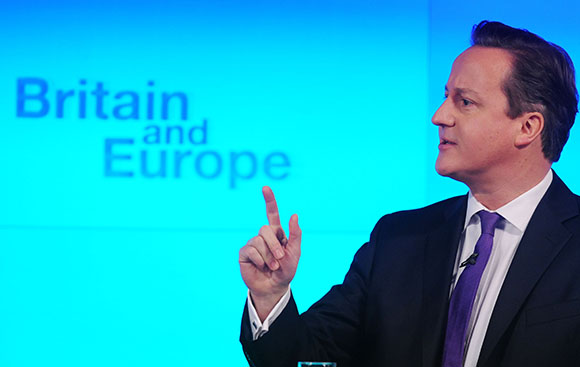
UK referendum: what is the next step?
External Relations 19 February 2016The deal with the UK was the subject of intensive talks yesterday at the European Council. Negotiations at all levels are still ongoing to find an agreement with all member states. The 28 heads will seek to reach an agreement on a legally binding decision today.
Following the discussion at the December 2015 European Council on the UK plans for an (in/out) referendum, the European Council agreed to find mutually satisfactory solutions in four areas of concern, namely competitiveness, economic governance, sovereignty and social benefits and free movement. Indeed, on 2 February 2016, President Donald Tusk put forward a proposal for a new settlement addressing all these concerns. Tusk said the package was “a good basis for a compromise”, but also warned that there were “still challenging negotiations ahead – nothing is agreed until everything is agreed […] The clear objective is to have an agreement of all 28 at the February European Council. To succeed we will all need to compromise. To fail would be compromising our common future”.
On economic governance, further integration is needed to achieve full Economic and Monetary Union (EMU) for those States whose currency is the euro, but any further measures aimed at deepening EMU will be voluntary for non-eurozone States.By doing that we can pave the way for the further integration within the euro area while safeguarding the rights and competences of non-participating Member States.
On competitiveness, the internal market and the free movement of goods, persons, services and capital are essential objectives of the Union, and the EU must increase efforts to enhance its competitiveness to achieve this objective.
On sovereignty, the UK’s special position under the EU Treaties, does not committ London to further political integration. References in the EU treaties to the process of creating an “ever closer union among the peoples of Europe” should not be considered as referring to an aim of political integration;
On social benefits and free movement, respect the current treaties, in particular the principles of freedom of movement and non-discrimination. At the same time, it is legitimate to provide EU and national measures to avoid or limit flows of workers from other Member States of such a scale that they have negative effects for the States of origin and the States of destination. From this point of view,the most problematic of the UK Prime Minister’s demands has been the proposed restriction on in-work benefits over a period of four years, which other Member States, especially those in Central and Eastern European, are likely to find discriminatory and unpalatable.
In the meantime, negotiations are still ongoing as a deal has not been reached yet.





